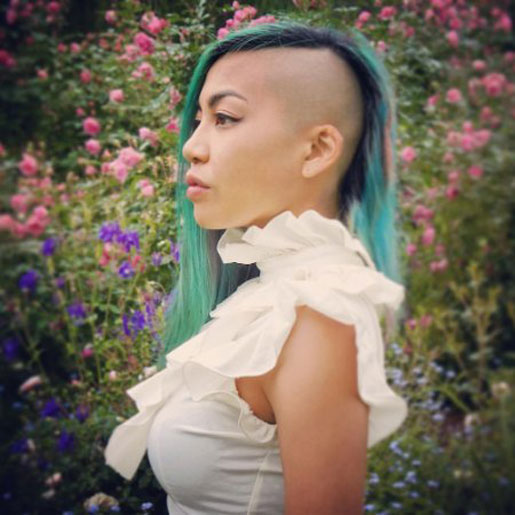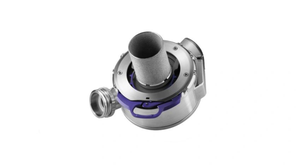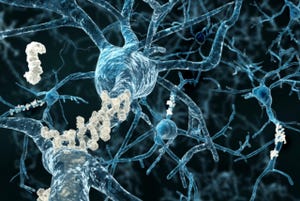Samantha Huynh
July 27, 2016

Samantha Huynh | |
Samantha Huynh, 27--PhD Student in Biomedical Engineering, University of Southern California Huynh works in Dr. Terry Sanger's lab developing an exoskeleton that will advance assistive technology by using the patient's own muscle signals. The idea, conceived by Sanger, would be well-suited for patients with muscular weakness. Huynh explained that muscle signals can be read by electromyography sensors and those signals can be used to start the movement of the pneumatic muscles. Her exoskeleton research is focused on facilitating the creation of new neural pathways to help patients move and develop muscle instead of experiencing muscle atrophy and weakness. Huynh came to the exoskeleton project with experience from top companies like Tesla Motore, Space Explorations Technologies (SpaceX), and General Dynamics ATP. She was trained in mechanical and materials engineering. Huynh explained her attraction to the medtech field: "My own curiosity and motivation for personal application brought me to the greatest mystery I could put my hands on--the human body. I believe that though I am lacking in a biological system-centric resume, my multidisciplinary background is a new perspective that the field needs." What's next--in her own words: "After my proposed advances with the upper body exoskeleton, I intend to modify its design to suit lower body paralysis needs . . . I mean to use the technology I've adapted to help those in need of muscle weakness and muscular signal remapping. A lesser-known motivation for the continuation of the exoskeleton invention is personal. I have a friend who met with unfortunate circumstance, thus giving me the insight I needed to apply my skills to the field. Though my continuation in the field is self-sustaining at this point, I would be remiss in failing to mention that his unwavering spirit and indomitable will to live life to the fullest has inspired me to do much of the same." What are the biggest factors that helped you become a young innovator? "I was born on a farm--small and unassuming in the deserts of New Mexico and I worked as a mechanic for a time. My family is one of modest means and the preservation and innovation of what we had is a skill fostered at a young age. I was raised with the unshakable support of my family and their belief that if they could come to this country and raise a family in the land of opportunities, then I had little choice but to run with it. I was unhindered by the suffocation of gender roles; self-sufficiency and independence were far more important principles than what "girls should do" and I am grateful for my parents' perspective. I would be lying if I said I knew I was going to be an engineer at a young age--I didn't even know what an engineer was until I started applying to colleges. I did know that I had the capabilities to sit and listen, to carefully look at a problem and find out its root cause. I was taught to investigate problems critically, because a broken truck doesn't get mother or father to work, and the family suffers. Livestock and hounds don't care how many degrees you've got or how much money is in your bank account--humility was ingrained into my bones as I learned that expert handling and kindness are far more effective than ego. Growing up as a first-generation American gave me a unique perspective and appreciation for the sacrifices it took to get me here; it also taught me that the sacrifices I make today will better serve the future . . . You do the best you can and leave it better for those after you--my mother taught me that . . ." What is the biggest challenge you have faced so far? "Honestly? Imposter syndrome. No joke, I have this lingering fear that whispers in the back of my mind, "You're not supposed to be here. They'll find out. You're not good enough. You don't belong here." . . . The trick is to disregard everything everyone else says. Even the supporters, because I've found that it doesn't matter if a nation believes in you, if you don't believe in you, there's nothing that can be done about it. You have to realize that you're good enough to finish what you start and to ask for help when you need it. You're not alone and you're still learning. I've learned that humility and confidence often go hand-in-hand and the idea that you have to deny how good you are is as much a crock of lies as using bravado to exalt yourself above how much you need help. True confidence stems from the root of willingness to learn, and that willingness comes with the acceptance that you can be taught. That you are capable of learning anything that you need to finish the job. Because you are." | |
| |
| |
[Image courtesy of SAMANTHA HUYNH] |
You May Also Like


.png?width=300&auto=webp&quality=80&disable=upscale)

